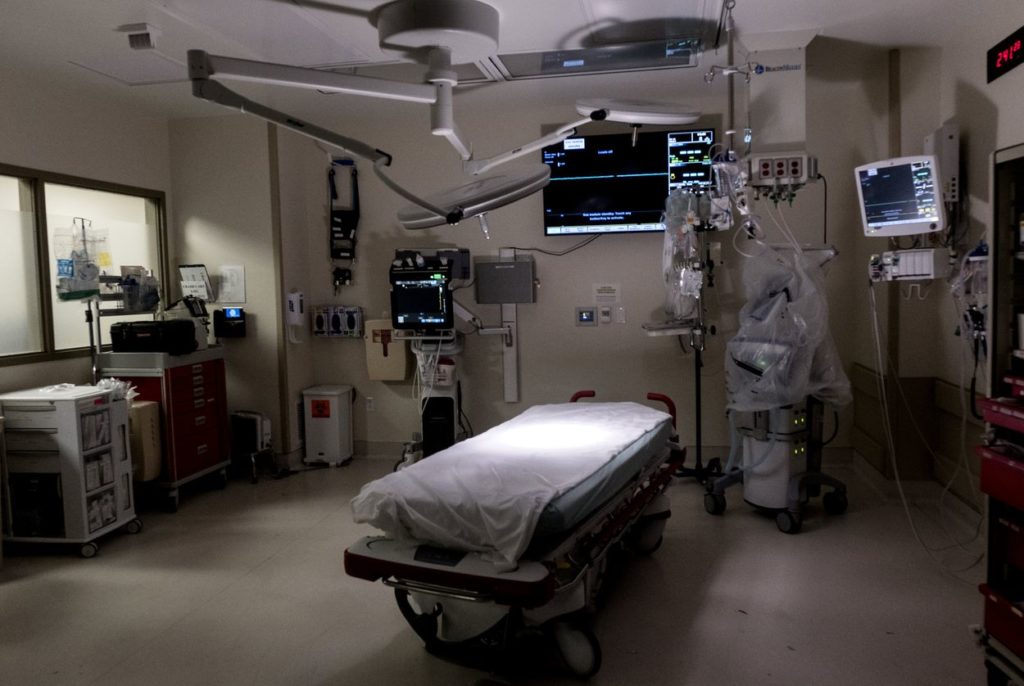Sweeping legislation takes aim at shock emergency room bills in Texas
BY JAY ROOT AND SHANNON NAJMABADI

With more and more Texans seeking relief from shock medical bills, two prominent lawmakers — one Republican, one Democrat — are pushing far-reaching legislation that would bar emergency care providers from sending surprise bills to patients covered by state-regulated plans.
Typically, the unexpected and often confusing bills result when disputes between out-of-network doctors and insurance companies leave patients holding the bag — even if they had no choice in selecting their medical provider.
But now, state Sen. Kelly Hancock, R-North Richland Hills, and Rep. Trey Martinez Fischer, D-San Antonio, want to keep those disputes from spilling over onto patients’ bills. They unveiled their bipartisan legislation at the Texas Capitol Thursday.
“Thousands receive unexpected and frankly unreasonable surprise medical bills every year,” said Hancock, the chairman of the Senate Business and Commerce Committee. “Enough is enough.”
Martinez Fischer, who heads the House Business and Industry Committee, said insurance companies and medical providers should work out their disputes without dragging consumers into it — and often saddling them with huge bills.
“Why should a patient get caught up in the middle?” said Martinez Fischer. “We’re going to put the patients’ interests first.”
The legislation’s filing comes as patients’ requests for state help with out-of-network ER bills are skyrocketing. The Texas Tribune reported earlier this month on a backlogin the state’s mediation program, which allows many insured patients to force their providers and insurers into a negotiation that often lowers the bill dramatically.
The state’s mediation program was created in 2009 by legislation Hancock authored. Reforms passed in 2015 and 2017 lowered the threshold to participate, dramatically expanding the number of patients eligible. Regulators believe those changes, as well as media attention, contributed to the surge in requests.
Not everyone is eligible for mediation or protected under the legislation announced Thursday, because many insured Texans — such as those on Medicare, Medicaid or covered under the federal Employee Retirement Income Security Act — aren’t protected by state insurance regulations.
But for those who are covered, the bill Hancock and Martinez Fischer filed would provide unprecedented protections for patients seeking emergency care in Texas. The legislation allows ERISA plan holders to opt into the protection.
“Our hope is that by including theses plans in mediation, Texas will send a loud and clear signal to D.C., that similar consumer protections need to be passed at the federal level,” he said. “Until then, Texas, Trey and myself are committed to doing something about it.”
Under the legislation, Senate Bill 1264, out-of-network medical providers — including doctors and hospitals — “may not bill” an eligible patient for emergency medical services. That patient would have “nofinancial responsibility” for costs beyond what they would owe under their insurance plan, such as co-payments and deductibles.
The bill authors were surrounded by several sympathetic interest groups Thursday, including AARP, the liberal Center for Public Policy Priorities and the Texas Association of Health Plans, the insurers’ trade association.
“We really just need to take the consumers out of this whole mess,” said Blake Hutson with AARP Texas.
Conspicuously not invited to the press conference: medical providers.
Some crashed the party anyway, filtering into the Senate conference room just as lawmakers concluded their remarks, at the behest of the Texas Association of Freestanding Emergency Centers. Free-standing emergency centers are treated the same as regular hospital emergency rooms under the legislation.
Dr. Daniel Roe, an Austin emergency room doctor, said the bill doesn’t address a big problem: insurance plans that don’t adequately cover their services.
“Insurance companies are offering plans to patients that are not providing good coverage for emergency care and they are actively discouraging patients from seeking emergency care,” Roe said. “Patients are being sold junk insurance.”
Jamie Dudensing, chief executive of the Texas Association of Health Plans, which represents health insurance companies, said out-of-network doctors can make three times what their in-network counterparts earn under state agency regulations.
“But this discussion and finger pointing is a distraction from what really matters, protecting Texas patients from surprise billing,” she said. “Texas patients should never be financially penalized when they receive care from an out of network doctor they did not choose.”
Lloyd Doggett, a Democratic Congressman from Texas, said he was encouraged by the growing and bipartisan interest in helping consumers “victimized by surprised billing.”
However, he said “a federal response is essential.” Legislation like his “End Surprise Billing Act,” which he said would apply to all health insurance plans, could protect both “those who work for large employers with self-funded, federally regulated ERISA plans and assure that patients across America are not forced to pay the price for conflicts between insurers and health care providers.”

